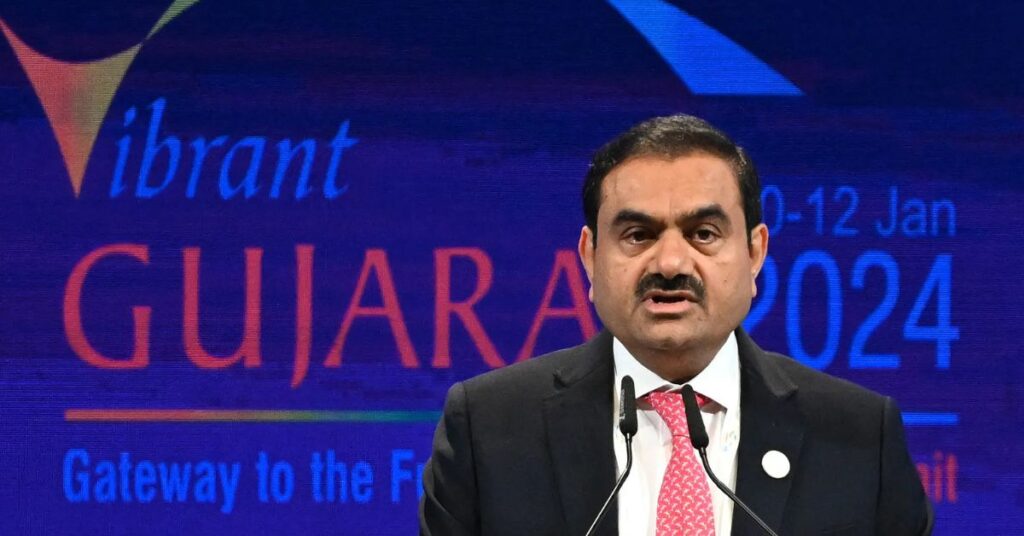Indian billionaire Gautam Adani, who leads the Adani Group, faces serious legal trouble in the United States. He has been charged with fraud and bribery. Prosecutors in New York claim that Adani and his associates paid over $250 million in bribes to Indian officials to win valuable solar energy contracts.
These contracts, associated with Adani Green Energy Ltd., could generate over $2 billion in profits over the next 20 years.
The indictment, released on November 20, 2024, accuses Adani and seven other executives of paying bribes to secure large renewable energy projects. Prosecutors say these bribes helped them make deals with state-run electricity companies in India, which were initially reluctant due to high prices. The contracts would supply 12 gigawatts of solar power, enough to power millions of homes and businesses.

Adani and his team are also accused of misleading investors and banks by hiding the bribery scheme. From 2020 to 2024, they allegedly raised over $3 billion through loans and bond offerings based on false claims about their company’s anti-corruption efforts.
Others charged with Gautam Adani include his nephew Sagar Adani, former Adani Green Energy CEO Vneet Jaain, and other executives involved in the scheme.
The charges include:
- Securities fraud
- Wire fraud conspiracy
- Violations of the Foreign Corrupt Practices Act (FCPA)
- Obstruction of justice
Prosecutors allege that the defendants tried to obstruct investigations by deleting evidence, withholding information, and using code names like “Numero Uno” for Gautam Adani during discussions about bribes.
These allegations are a major setback for the Adani Group, which operates in various sectors like ports, airports, power generation, and renewable energy. After the indictment, bonds issued by Adani companies lost significant value. For instance, bonds from Adani Ports maturing in 2027 fell by more than five cents on the dollar.
This legal issue arose nearly two years after the U.S. short-seller Hindenburg Research accused the Adani Group of financial misconduct and improper use of offshore tax havens. Although the group denied these accusations, it lost $150 billion in market value at the time.
U.S. Attorney Breon Peace called the scheme an “elaborate plan” to enrich the defendants at the expense of honest markets. Deputy Assistant Attorney General Lisa Miller said the defendants manipulated both investors and officials for personal gain.
The U.S. Securities and Exchange Commission (SEC) has also filed a civil lawsuit against Gautam Adani and his co-defendants for breaking antifraud rules under federal securities laws. The SEC seeks financial penalties, permanent bans, and restrictions on holding officer or director positions.
If convicted, Gautam Adani and his associates could face harsh punishments, including significant prison time and large fines. Arrest warrants have been issued for several defendants, including Adani, who is thought to be in India.
This case highlights the increasing concern over corporate governance in emerging markets like India. While the Adani Group has not yet commented on the charges, this situation may have significant effects on its global business and reputation.
As the story develops, it emphasizes the need for transparency and accountability in business activities, reminding us that even the most powerful companies must operate ethically.